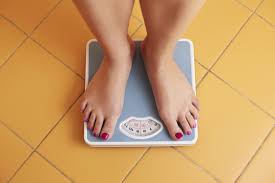Menopause Weight Gain, How Does it Happen and What Can Be Done?
Menopause weight gain can be a problem for most of women who find themselves already overweight when they reach the phase where they become over-weight. Beginning in the mid-30s and going on up to menopause in the 50s, women find that their metabolism is not slow and they are no longer able to maintain their previous weight. Most of us have already experienced menopause weight gain, the Contin repositories of lower estrogen levels and today we also see more estrogen-based cancers, like breast and ovarian.
There are various reasons why it does occur, and the good news is: menopause weight gain doesn’t have to be inevitable. While it is true that your metabolism will slow down as you age – and will generally level off around the time of menopause – that doesn’t mean that it isn’t possible for you to reverse societal weight gain and achieve reasonable, healthy weight. It is more important to prevent weight gain than to fight it, and it is likely that healthy, long-lasting weight loss, a reduction in the frequency of meals as well as of the amount eaten, is the best fight against menopause weight gain.

Here are just a few healthy steps you can take:
By understanding how menopause causes your body to gradually gain weight you will be able to more easily plan to fight it, or at least not to let it take its toll on your body and mind, it will also help you to slow down the rate at which you gain weight each year. Eating a healthier diet will also help, but you need to remember, menopause weight gain is a slow, progressive process and it is not necessarily something you can do to slow it down.
Step 1 Stay away from junk food. There are many “good” foods that are junk, unhealthy and not good for you, to start with; crackers, biscuits, pastries, white bread sodas, donuts, chips, burgers, potato chips and the like. The best choice is to start replacing their unhealthy alternatives with whole, healthy grains, beans, and legumes, as well as vegetables, fruits, and low-fat dairy.
Step 2 Plan your meals. While it is very important in an age when it is difficult to find enough time to sit and plan your meals, you can’t live on healthy food if you don’t plan and prepare enough, as it will become part of your meal plan. A method you can use to cook and prepare your meals often enough is to make a large pot of soup.
Step 3 Stay away from everyone. Not all people are the same; if some people can work out in a way that you can’t or don’t have the time, their exercise routine probably won’t work for you, and again, it is unlikely that you would stay with it. Remember that if your body feels pain, it might be something that you have hurt and that is the most important thing to fix first. Don’t rush into fix it right away, educate yourself first. If you seriously can’t: start adding small amounts of physical activity every few months until you are up to it.
Step 4 Get more active. If you are not already exercising, start by incorporating simple stretching and then slowly add a workout routine. A good starting point is to go for an evening walk with your girlfriends, or a local yoga class, or maybe just a cup of coffee and a walk. Remember to always check with your doctor before engaging in any new health change program.
Step 5 Adjust your eating habits. Remember that your body is very complex, and it takes varying conditions of nutrition to produce complex chemistry within your body. The best way to guarantee that you’re obtaining the proper nutritional value is to read labels and plan your dietary meals. Make sure that you are consuming the right amount of protein, carbohydrates (complex carbohydrates), and even fat in your diet, and you are certain to be starting your own menopause weight loss program.
